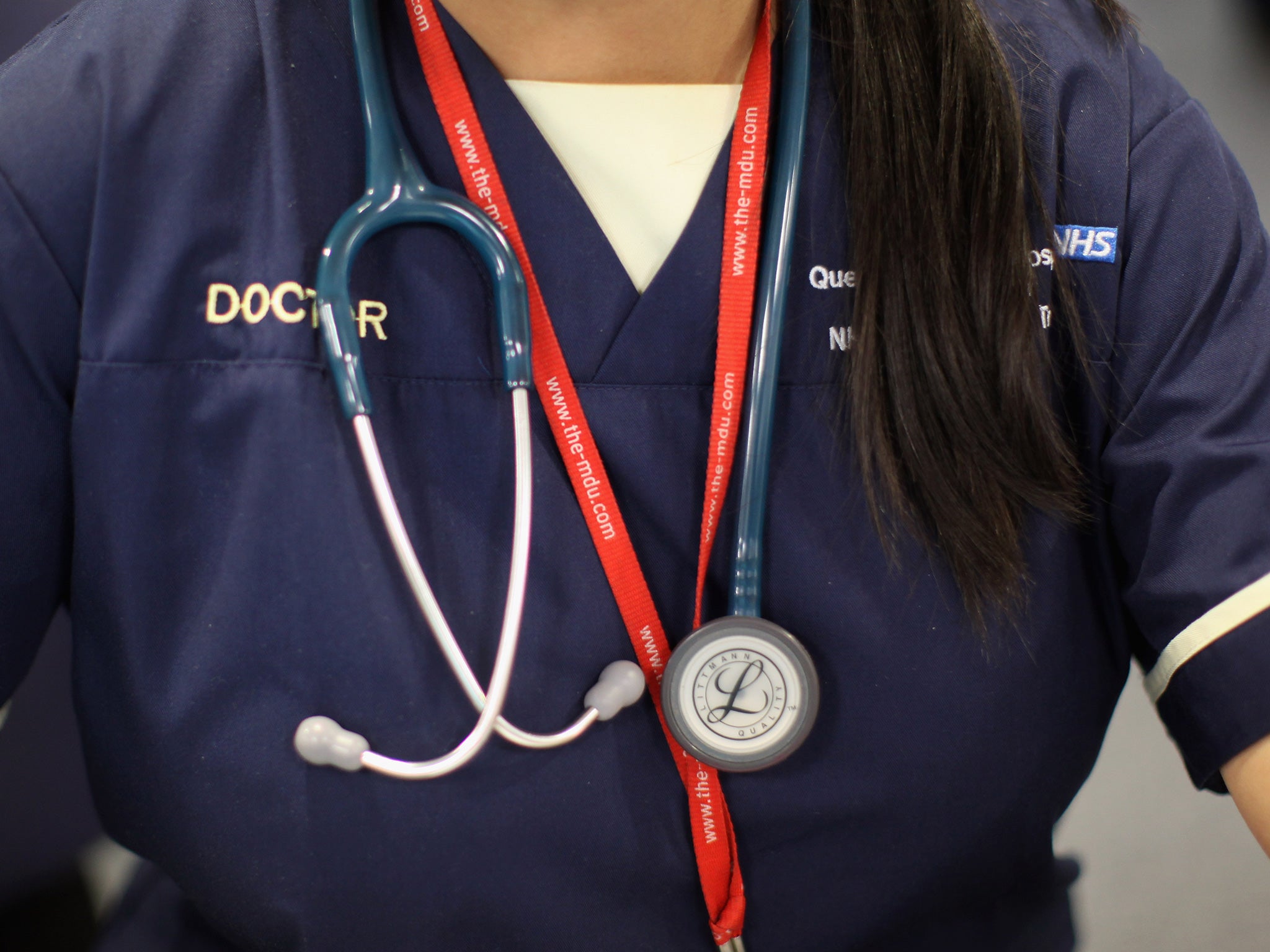NHS hospitals in England in their 'worst' financial position for a generation, say new figures
Hospitals have racked up debts of nearly £1bn in just three months

Your support helps us to tell the story
From reproductive rights to climate change to Big Tech, The Independent is on the ground when the story is developing. Whether it's investigating the financials of Elon Musk's pro-Trump PAC or producing our latest documentary, 'The A Word', which shines a light on the American women fighting for reproductive rights, we know how important it is to parse out the facts from the messaging.
At such a critical moment in US history, we need reporters on the ground. Your donation allows us to keep sending journalists to speak to both sides of the story.
The Independent is trusted by Americans across the entire political spectrum. And unlike many other quality news outlets, we choose not to lock Americans out of our reporting and analysis with paywalls. We believe quality journalism should be available to everyone, paid for by those who can afford it.
Your support makes all the difference.NHS hospitals in England are in their “worst” financial position for a generation, official figures have revealed, racking up debts of nearly £1bn in just three months.
The figures are contained in a damning report by the NHS regulator, Monitor, which was allegedly delayed after ministers “leaned on” the organisation to stop publication during the Tory party conference.
It found that, between April and June, NHS trusts built up a deficit of £930m – more than the £820m overspend for the entire previous year. Experts warned that, on current trends, the deficit could top £2bn for this financial year, raising the prospect that the NHS could require an emergency bailout from the Treasury.
Monitor said that financial constraints were having a direct impact on patient care, with waiting lists for routine operations reaching 1.9 million – an increase of 169,100 on the year before.
Some 10,800 patients have waited longer than the recommended six weeks for diagnostics tests, and 29,000 people waited on a trolley for more than four hours because of reduced bed availability.
Monitor warned that the NHS was “under massive pressure” and could no longer afford to go on as it was. It described the situation as a “worst in a generation financial position”.
“Trusts are working hard to provide patients with quality care,” said David Bennett, Monitor’s chief executive. “However, the figures reiterate that the sector is under massive pressure,” said Dr Bennett. “The NHS simply can no longer afford, operationally and financially, to operate in the way it has been and must act now to deliver the substantial efficiency gains required to ensure patients get the services they need.”

The figures are particularly controversial as it appears their publication was delayed so as not to coincide with the Conservative Party Conference which took place this week.
Normally, Monitor’s quarterly report on how the NHS is faring and equivalent data from the NHS Trust Development Authority are published around the time of the organisations’ board meetings in September. Hospital trusts passed their information to the regulators two months ago.
NHS insiders said that it was “very, very odd” that, in a departure from its usual practice, Monitor discussed the financial and treatment-waiting-time performance of the 152 foundation trusts it regulates in private at its board meeting last month. It was alleged that both organisations came under pressure from the Department of Health to delay publication. The Department of Health denies this.
Richard Murray, director of policy at the healthcare think-tank the King’s Fund, said: “Warnings of a deficit of at least £2bn by the end of the year are well founded.
“The Government and NHS bodies are already taking urgent measures to reduce spending and find savings from other budgets, but it is inconceivable that an overspend of this magnitude can be covered by the end of the year.
“Overspending on this scale cannot be attributed to mismanagement or waste among individual trusts. It reflects the impossible task of delivering high-quality care for patients with inadequate funding.
“The Government must now acknowledge it cannot continue to maintain standards of care and balance the books.”
Paul Healy, a senior adviser at the NHS Confederation, which represents hospital managers, said the deficit was a “symptom” of problems across the entire health and social care system. “Hospitals and other frontline NHS organisations have all but exhausted their options for becoming more efficient. They are also increasingly affected by cuts in social care, local GP shortfall and a host of other challenges,” he said.
A spokesman for the Department of Health said it accepted that finances were “challenging” for parts of the NHS, but that the Government was committed to investing £10bn to fund the NHS’s own plan for the future.
“The NHS must play its part in delivering efficiencies – so we’re taking action to help hospitals clamp down on rip-off staffing agencies and cut spending on management consultants,” he said. “We expect the impact of these measures to be reflected … later in the year.”
But Ian Wilson, from the British Medical Association, said that the NHS was “facing a funding crisis the likes of which we have never seen”.
“Despite what politicians claim, NHS funding has not kept up with rising patient demand and the increased cost of delivering care,” he said.
Join our commenting forum
Join thought-provoking conversations, follow other Independent readers and see their replies
Comments